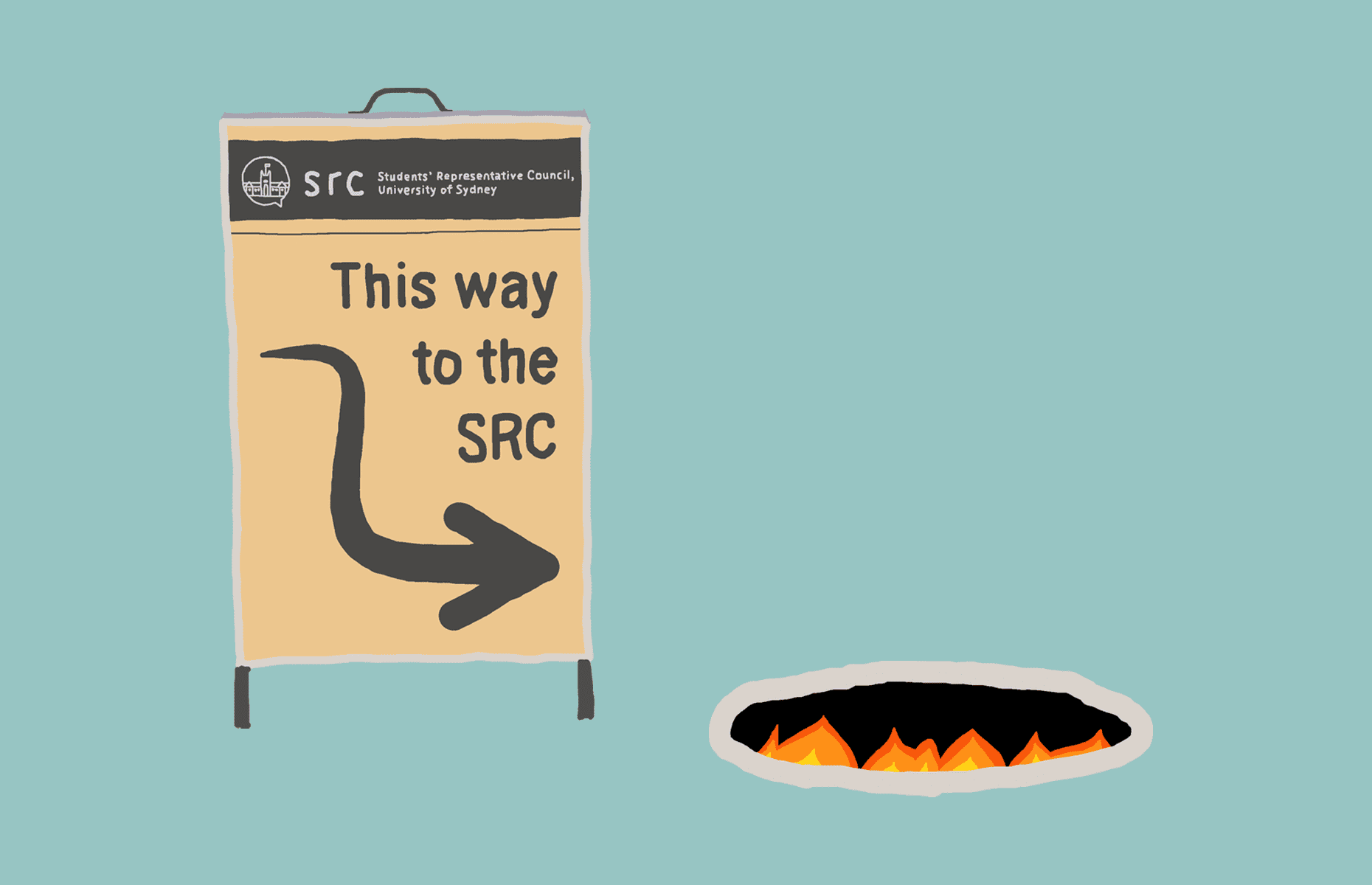Growing up a particularly sentimental and anxious child, the prospect of moving house and leaving my childhood bedroom behind is one that would regularly fill me with premature grief. I spent many nights inconsolable, melodramatically sobbing into my pillow.
I quite simply did not want to move on, because in my mind to do so would be to betray my tiny, messy room, and to abandon everything it had given to me; warmth, comfort, safety.
When I was fourteen, the time finally came for my parents and I to move ten minutes down the road. I had a swimming pool and my own bathroom. I had long since shed my fear of leaving my little Watanobbi bedroom, and I felt okay about it.
I turned 21 last week, and I’m contending with the same emotions that so often brought me to tears as a child. This time around, I find myself mourning my departure from a space that is objectively quite unpleasant.
The SRC office, sequestered away in the basement of the Wentworth building, is occupied by the organisation’s professional staff, the Honi editors, and a revolving door of unwashed hacks with anger issues and strongly held opinions. The SRC does not receive adequate airflow, and moulds of varying varieties and degrees of toxicity appear to have reached symbiosis, cohabitating and thriving in the carpets and walls.
Perhaps the most disconcerting aspect of spending any amount of time in the depths of the SRC is the fact that it doesn’t have a single window past the front foyer, and that it does not receive any natural light as a result. Entering the office in the morning, doing a few tasks bathed in clinical overhead lighting, and then walking out to find yourself in the darkness of night is a crucial part of the SRC experience.
A broken (belatedly fixed, courtesy of USyd management) zip tap can be found in the kitchen, as can a fridge storing exclusively palaeolithic food items (and not in the lean meats and cashews way), including a two litre bottle of orange juice that has turned an unsettling shade of brown.
The real main attraction is the office bearer room. In the middle of the OB room is an assortment of mismatched tables, their surfaces coated in acrylic layers that have built up over years of banner paints. A collection of battered chairs can be found strewn across the office, half of which I am certain I helped throw out last year, only for them to rematerialise in their apparent rightful place.
Desks and overhead shelving units line the perimeter of the room, adorned with activist stickers that are likely older than God himself. This room, as messy, stuffy, and overstimulating as it is, has become rather dear to me over the past two years. Faced with the fast-approaching end of my paid involvement in the SRC, I don’t quite feel ready to let it go.
I spend an unhealthy amount of time in the office, attending collective meetings, laying up publications, struggling through assignments, or simply chatting with mates. I have been reminded over the past year, with each minute I’ve spent inhaling black mould spores, of a friendship that formed in the bowels of Wentworth a little while ago.
This friend of mine embodied everything about collective organising that I have repeatedly fallen in love with in my time at university. They diligently nurtured those around them in ways that often came at a personal expense emotionally and mentally. The fonder I grew of them, the more this hurt to watch.
In the middle of a perfect storm of personal and political disagreements, we had something of a falling out. Suddenly everything from the wicker chairs to the brown-grey stain on the women’s room ceiling (that has since become a rather large open hole), was a persistent reminder of the disorienting windowless days we’d spent together in the office, of an absence in my life that never grew less noticeable.
Recently I decided, as I was preparing myself to leave this space, that I wanted to tie up loose ends. I debated reaching out to my friend, wrestling with questions of what it was all for and what I wanted out of all of it.
By some twist of fate, we ran into each other the next day. We reconciled over a meal of tempeh and fried rice, and more than ever I was struck by how much this absurd space and its absurd people mean to me. It was the foundation of so many firsts, and as the lasts come rolling in, I could never stay mad at it, nor at its peculiar population, even if I wanted to.
There are some homes we choose, through mountains of paperwork and hyper-competitive rental viewings, and there are some we simply find ourselves in. Like most homes, the SRC has seen love, loss, and anger, all of which have a way of sticking with you when you leave. I am thankful for the many people I met in the office, and who I get to cherish and keep, even if the whole ordeal leaves me with mould on the brain.





